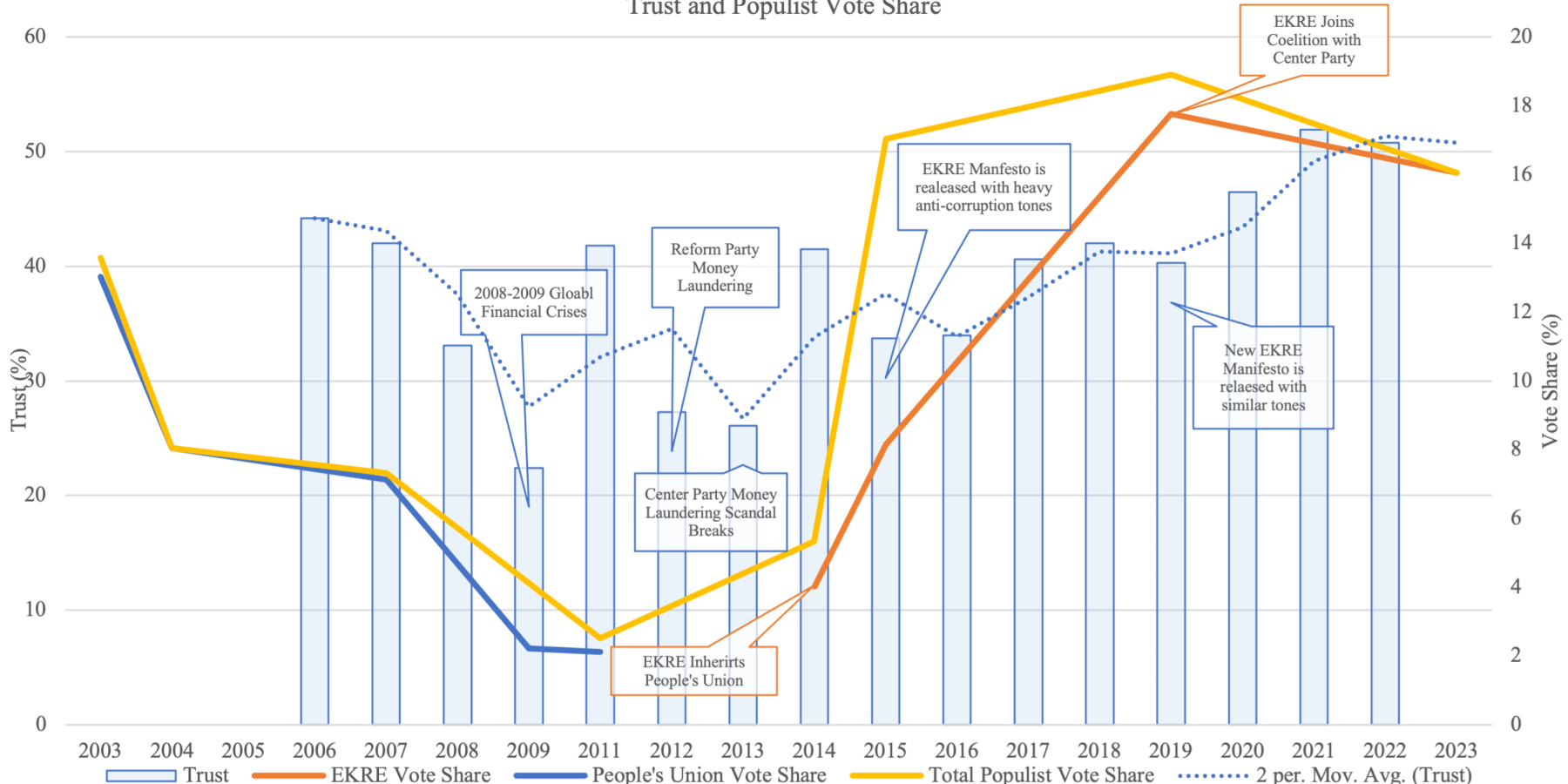The Case of Estonia

Research Question: Can populist political parties in countries with relatively low levels of corruption gain public support using anti-corruption platforms? If so, why does this campaign tactic work?
I chose to answer this research question using a case study method. Looking specifically at Estonia posed an interesting puzzle: Estonia is the anti-corruption poster child of Eastern Europe, so why are Estonian populist parties so successful? Rather than looking at qualitative data, I did an extensive dive into the written content published by these populist parties including their manifestos, news articles, and content from Twitter. Using these excerpts, I built a case study that unpacks how anti-corruption campaigning is possible and relatively effective in countries with low corruption levels.
Through this research, I found that Estonia has one of the lowest corruption levels in the world (74/100, Rank 14) (Transparency International) making it an outlier of Eastern Europe yet it has a few successful populist parties that are, in fact, utilizing anti-corruption campaigns. The EKRE (Conservative People's Party of Estonia) is both the most successful populist political party in Estonia and the party that uses by far the most anti-corruption rhetoric in its campaign strategy and other affiliated releases. The 2015 and 2019 EKRE manifestos are riddled with anti-corruption policies and call out the Center Party and Reform Party frequently for their “self-serving tendencies”. News stories published by the EKRE under Uued Uudised contain a variety of op-eds and inflammatory titles that attack political opponents and the political system itself. Other populist parties in Estonia (EME, EIP, and EV) have some tellings of anti-corruption stances, yet they hold much less significance in the political sphere.
Anti-corruption campaigning is happening in Estonia regardless of actual levels of corruption.
The EKRE has seen a substantial and continued increase in its vote share since 2the creation of the party in 2014. The EKRE even entered into the governing coalition with the Center Party after the 2019 election.
Even after being implicated in its own corruption scandal in 2021 and being removed from the governing coalition, the EKRE still managed to retain much of its vote share. Given the EKRE’s continued success, it is clear that the perception of corruption is important and when used effectively, can motivate a voter base and encourage protest votes against incumbent governments.

